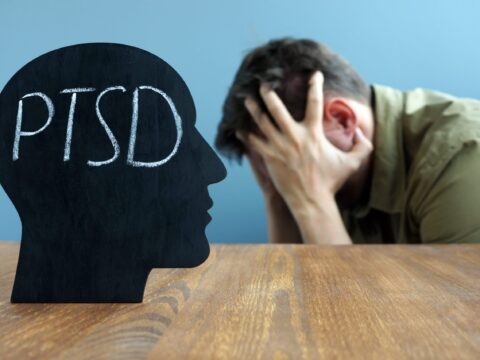Family Counseling For Addiction In Knoxville, TN
Contrary to what many people may see on the surface, addiction affects the entire family. While an individual user’s suffering is easy to see, it is crucial to remember how it impacts the entire family. Overall, when a family unit undergoes the stress and agony addiction brings, it can leave them feeling broken, hopeless, and lost. Fortunately, family therapy for addiction in Knoxville, TN can help to reverse much of the damage done through addiction. By getting to the root cause of dependency and by involving all of those affected, family counseling for addiction can be a powerful healing tool that gives families a chance to reconnect and reprioritize before it is too late.

Family Counseling in Addiction Recovery
For those who are in a recovery program for substance use, addiction counseling for families will play a large role in their treatment. It is a vital component of all addiction treatments because without it people are not able to dig into the reasons behind their addictions. Additionally, they can’t understand the impact that it has had on them mentally and emotionally.
For those seeking help who have families—especially spouses or children—we highly recommend family counseling for addiction. This is because the addiction does not just affect the person, it also affects those around them. By utilizing family therapy for addiction in Knoxville, clients can help rebuild and strengthen the family unit as a whole.

The Impact of Addiction on Families
Addiction not only affects the individual struggling with it but also significantly impacts their families, creating a ripple effect of disruption, stress, and financial strain. In Knoxville, where families seek support through family therapy for addiction, the repercussions extend beyond the individual’s struggles.
It’s particularly distressing for children witnessing their parents grapple with addiction, as it heightens their vulnerability to developing substance abuse issues themselves. Through family therapy in Knoxville, tailored sessions address the complex dynamics within households affected by addiction, offering a safe space for each family member to voice the negative impacts they experience.
The negative effects vary among families but encompass a spectrum of challenges, including:
Negative Emotions
Substance abuse triggers a cascade of negative emotions among all family members, from anger and depression to anxiety, resentment, guilt, and embarrassment. These emotions often remain unaddressed without the intervention of family therapy for addiction in Knoxville.
Inappropriate Responsibilities
Children of an individual with a substance use disorder face the daunting prospect of shouldering responsibilities beyond their years, forced into caregiving roles for younger siblings or compelled to work to support the family’s financial needs due to parental incapacity.
Poor Communication
Addiction disrupts healthy communication patterns within families, leading to frequent conflicts and prioritization of the patient’s needs over others’, highlighting the necessity of family therapy for drug addiction to restore effective communication channels.
Unsafe Conditions
Living with addiction poses inherent risks for family members, particularly children exposed to drugs and potential accidents. Instances of drug-related altercations may escalate, requiring intervention from law enforcement.
Lack of Structure or Boundaries
Families grappling with addiction often lack the necessary structure and boundaries essential for children’s development, exposing them to inappropriate behaviors and environments.
Damaged Relationships
The strain induced by addiction leads to significant damage in familial relationships, exacerbated by the client’s absence due to their substance abuse, necessitating focused intervention through addiction counseling for families.
Unhealthy Habits Families Develop
Coping with the challenges imposed by addiction, families may resort to unhealthy coping mechanisms, such as denial or enabling behaviors, perpetuating a cycle of dysfunction within the family unit. Codependency and enabling behaviors emerge as prevalent issues, hindering the family’s overall well-being.
In addressing these multifaceted challenges, family therapy for substance abuse provides a holistic approach, fostering healing and resilience within families affected by addiction, thereby laying the groundwork for lasting recovery and restoration of familial harmony.
A New Day Begins with Tennessee Valley Recovery
Visit the admissions page at Tennessee Valley Recovery today to learn more about our treatment plans.
Codependency
Codependency happens when people have to adapt to the behaviors and habits of the person with an addiction. These changes result in them ignoring their own wants and needs in favor of taking care of their individual with a substance use disorder relative–often to an obsessive level. This is one of the most common issues addressed during family therapy for substance abuse in Knoxville.
Codependent behaviors can include:
- Constantly worrying about their loved one’s habits and the consequences of their addiction.
- Being in denial about the problem, including lying to or avoiding others so that they do not find out.
- Having violent or irrational reactions to issues related to the addiction.
- Neglecting physical and emotional needs to focus solely on the individual with a substance use disorder loved one.
- Turning anger about the situation onto others, such as the children or pets.
- They may use unhealthy coping mechanisms, such as overeating, compulsive purchases, or hyper-focused on a hobby.
- Allowing the individual with a substance use disorder mood to determine their own.
Enabling Addiction
Enabling is another unhealthy coping mechanism that can result from addiction, and can stem from either fear of the individual with a substance use disorder loved one, or love. This is when a family member supports an individual with a substance use disorder by protecting them from any negative consequences. Enabling behaviors include:
- Using drugs or alcohol with the individual with a substance use disorder.
- Hiding feelings to prevent conflict with the individual with a substance use disorder.
- Accepting the individual’s justifications or excuses for their substance abuse.
- Protecting the individual’s image by making excuses for their absence or failure to fulfill responsibilities.
- Going out of one’s way to make the family and home seem normal to others.
- They experience feelings of guilt when unable to prevent the individual with a substance use disorder from experiencing the negative consequences of their addiction.

The Benefits of Family Therapy for Addiction in Knoxville, TN
Years of research have shown that Family therapy in Knoxville is a very important part of helping clients with families find longer-lasting sobriety. Both parties can feel heard so that they can effectively work towards healing their relationship.
When the family bond is strengthened, the person with a substance use disorder is supported healthily, while the needs of the rest of the family are also addressed. Additionally, those who have children affected by their addiction can make amends and establish age-appropriate roles moving forward. This way a child does not feel like they are the parent and can fully enjoy their youth.
Further benefits of family counseling include the following:
- Creates a supportive home environment
- Gives everyone the space to talk about their feelings
- Encourages better communication
- Eases feelings of anger or fear
- Allows family members to address any personal mental health concerns
- Teaches family members how to avoid triggering their loved one
- Establishes healthy ways for families to cope with their loved one’s addiction
- Promotes appropriate familial roles
- Identifies and stops enabling behavior

How We Approach Family Counseling in Addiction Treatment
Erratic behavior associated with substance use and mental health disorders contributes to high levels of relationship problems, conflict, instability, and stress. Substance use and relationship conflict create a damaging cycle that families have difficulty breaking. This cycle can lead to relapse for people with a substance use disorder.
An initial intake interview helps identify family strengths and challenges. There are a variety of strategies and interventions we use for the different stages of recovery. Our goal in family therapy for drug addiction is to initiate change in relationship dynamics. This approach promotes healing in a family environment that is beneficial to long-term sobriety.
At Tennessee Valley Recovery our family counseling actively involves family members in treatment. During family counseling, members learn how to communicate in healthy ways. One of the most helpful things families can do is become educated on addiction. Family members learn about addiction and recovery and how it affects their loved one. Family education provides meaningful knowledge and tools so they can actively and effectively support their loved ones during recovery.

Begin Family Therapy For Addiction in Knoxville
Those who come to our rehab center in Knoxville, Tennessee get help and still live close to their family. We always recommend incorporating family therapy for addiction in Knoxville. The negative effects addiction has on a family unit are both very real and very long-lasting if not addressed. By coming to family counseling together, each family member gets a chance to be heard, and relearn how to function as a normal and healthy family.
If you are struggling with an addiction, we are here to help. Visit our admissions page today to strengthen your family bond and build years of happiness ahead.
Our Services
- Family Counseling
- Partial Hospitalization Program In Knoxville, TN
- Rehab Near Pigeon Forge, TN
- Holistic Addiction Treatment in Knoxville, TN
- EMDR Therapy
- Equine Therapy
- Medication-Assisted Treatment
- IOP
- Mental Health Intensive Outpatient Program (IOP) in Knoxville, TN
- Mental Health Partial Hospitalization Program (PHP) in Knoxville, TN
A New Day Begins with Tennessee Valley Recovery
It is time to put your health and wellbeing first. Call us right now to learn more about how we can help you put a stop to your active addiction and begin living a life of recovery.
ContactLatest Blogs
Addiction Recovery News & Articles


The Benefits of Going to A MAT Clinic
Making the challenging decision to seek treatment for a …
